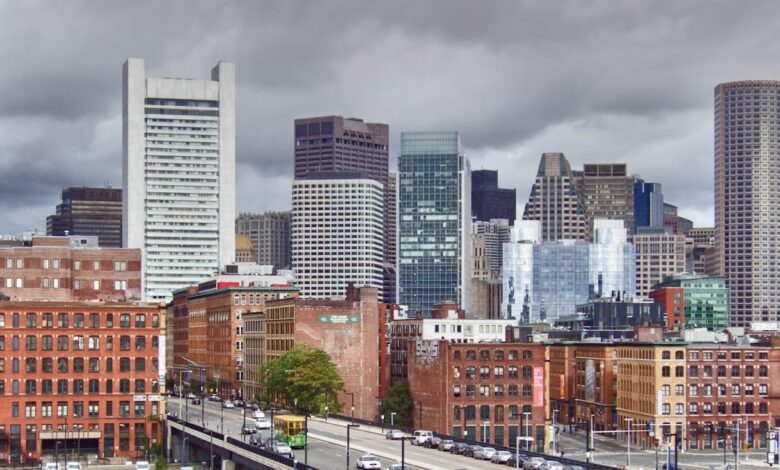The Gentrification Debate: Impact on Boston Neighborhoods

The gentrification debate in Boston is complex and multifaceted, with varying perspectives on its impact on neighborhoods across the city. According to a business owner, “Gentrification has brought new investments, businesses, and improved amenities to our neighborhood. It revitalized local economies and created job opportunities.” The gentrification debate in Boston revolves around its profound impacts on various neighborhoods, highlighting both positive transformations and contentious issues.
Gentrification often brings economic revitalization to neighborhoods, attracting new businesses, investments, and amenities. This can lead to improved infrastructure and increased property values, benefiting local economies. Economic development in Boston has been a dynamic force driving growth and transformation across various sectors of the city’s economy. Boston is renowned for its concentration of universities, research institutions, and biotechnology firms, making it a hub for innovation and entrepreneurship.
Economic growth has spurred investment in transportation infrastructure, including public transit systems, roads, bridges, and bike lanes. These improvements enhance mobility within the city and facilitate connectivity between neighborhoods, supporting economic activities and quality of life. According to a community leader, with gentrification, we’ve seen improvements in public infrastructure, like parks, schools, and transportation. It’s made our neighborhood more livable.”
Boston’s renowned universities and research institutions play a crucial role in economic development. They drive innovation, attract talent, and facilitate knowledge exchange that fuels industry growth and fosters partnerships. Economic development initiatives often include support for small businesses and local entrepreneurs. Programs that provide access to capital, business development resources, and networking opportunities help foster a diverse and resilient local economy.
Overall, economic development in Boston is characterized by its innovation-driven growth, diverse industry sectors, and investments in infrastructure and education. While it brings opportunities for job creation and prosperity, addressing challenges such as housing affordability, income inequality, and equitable access to economic opportunities remains critical for ensuring inclusive growth across all sectors.
As neighborhoods gentrify, there is a noticeable cultural shift. New residents and businesses may alter the neighborhood’s character, leading to concerns about the erosion of local culture and community identity. According to an activist, gentrification has pushed out longtime residents and businesses, eroding the cultural fabric of our community. It’s a loss of history and identity.Cultural shifts in Boston are a natural outcome of its evolving demographics, economic development, and social dynamics.
Boston’s demographic landscape has been changing with increased immigration, migration, and changes in residential patterns. This diversity contributes to a vibrant cultural tapestry as different communities bring their traditions, languages, and customs to the city. Economic development and urban renewal efforts often lead to gentrification, altering the socio-economic and cultural composition of neighborhoods. New residents and businesses may bring different cultural practices and preferences, impacting local traditions and social dynamics.
Cultural shifts are also driven by social movements and activism that advocate for social justice, equality, and environmental sustainability. These movements influence public discourse, policy-making, and community organizing in Boston. Amidst changes, efforts to preserve cultural heritage and traditions are crucial. Community organizations, cultural institutions, and residents work to safeguard historical landmarks, celebrate cultural festivals, and promote intercultural understanding.
These factors illustrate how cultural shifts in Boston are dynamic and multifaceted, influenced by demographic changes, economic forces, creative expressions, and social movements. Embracing diversity while addressing challenges of equity and inclusivity is essential for fostering a cohesive and resilient cultural landscape in the city. Gentrification frequently results in the displacement of longtime residents, who may be unable to afford rising housing costs or property taxes. This displacement can disrupt social networks and contribute to residential segregation.
Displacement in the context of Boston refers to the phenomenon where residents, particularly those in lower-income communities or marginalized groups, are forced to leave their homes due to various economic, social, or environmental factors. Economic development and investment in certain neighborhoods often lead to gentrification, where rising property values and rents make housing unaffordable for long-time residents. This displacement can uproot communities and erode social networks built over generations.
Boston faces a significant housing affordability crisis, exacerbated by high demand, limited supply, and increasing costs. Many residents struggle to afford rent or find suitable housing, leading to displacement as they are priced out of their neighborhoods. Large-scale development projects and urban renewal efforts sometimes result in the demolition of existing housing and displacement of residents. While these projects aim to revitalize neighborhoods, they can displace vulnerable communities who may not benefit from the changes.
In Boston, displacement is a complex issue with profound social, economic, and cultural implications. Balancing economic development with equitable growth and preserving community stability remains a challenge for policymakers and stakeholders striving to create inclusive and resilient neighborhoods. Rising property values and rents can create affordability challenges, making it difficult for low-income residents to remain in their neighborhoods. This exacerbates Boston’s housing affordability crisis.
Gentrification can deepen socio-economic disparities within Boston, concentrating wealth and opportunities in certain neighborhoods while leaving others behind. This contributes to disparities in access to quality education, healthcare, and public services. Equity and inequality are significant issues in Boston, shaping socio-economic disparities and influencing various aspects of life for its residents. Boston faces stark income disparities, with high-income earners often concentrated in certain neighborhoods while lower-income residents struggle with economic insecurity.
Racial inequities persist in Boston, impacting employment opportunities, education outcomes, and healthcare access. Communities of color, particularly Black and Latino populations, experience higher poverty rates and face systemic barriers to economic advancement. Historic and systemic factors have contributed to residential segregation in Boston, limiting housing choices and perpetuating socio-economic divides. This segregation often correlates with disparities in access to resources and opportunities.
Addressing equity and inequality in Boston requires strong efforts across sectors, including policy interventions, community engagement, and systemic reforms. By fostering inclusive growth, promoting diversity, and reducing barriers to opportunity, the city can work towards a more equitable future for all residents. Many communities affected by gentrification organize and advocate for policies that prioritize affordable housing, tenant protections, and community-driven development. This resistance aims to mitigate the negative impacts of gentrification and preserve neighborhood diversity.
Community resistance in Boston often arises in response to various urban development projects, policy changes, or initiatives perceived to threaten local interests or values. Residents and community groups resist gentrification and displacement caused by rising housing costs, development projects, or zoning changes that could alter the character of their neighborhoods. They advocate for policies that preserve affordable housing and protect vulnerable residents from eviction. They seek to protect the architectural heritage and cultural significance of their communities.
Overall, community resistance in Boston reflects residents’ concerns about preserving their neighborhoods’ character, addressing socio-economic disparities, protecting the environment, and advocating for equitable development that benefits all residents. Effective collaboration between stakeholders, inclusive planning processes, and responsive governance are essential to addressing community concerns and achieving sustainable urban development.
Policymakers in Boston face the challenge of balancing economic growth with equity and inclusivity. Strategies such as inclusionary zoning, rent control measures, and community land trusts are debated and implemented to address the impacts of gentrification. Policy responses to various urban challenges in Boston encompass a range of strategies aimed at promoting sustainable development, addressing inequality, and fostering inclusive growth.
New policies require developers to include affordable housing units in new residential developments. Some others are establishing funds to support the development and preservation of affordable housing units. They are exploring mechanisms to regulate rent increases and protect tenants from displacement. Lastly, some are investing in public transportation infrastructure to improve connectivity and reduce reliance on private vehicles.
Implementing strategies can help to reduce greenhouse gas emissions, promote renewable energy, and enhance resilience to climate change impacts. They are adopting regulations that promote energy-efficient and sustainable building practices. Preserving and expanding parks, green spaces, and urban forests to improve air quality and provide recreational opportunities.These policy responses illustrate Boston’s efforts to address complex urban challenges while promoting inclusive growth, environmental sustainability, and social equity.
Effective implementation, stakeholder collaboration, and ongoing evaluation are essential to achieving positive outcomes and enhancing quality of life for all residents. Overall, the gentrification debate in Boston underscores the complex interplay between economic development, cultural change, affordability, and community resilience. Finding equitable solutions that benefit all residents while promoting sustainable urban growth remains a significant challenge for the city.



